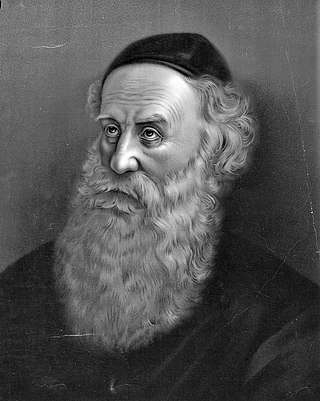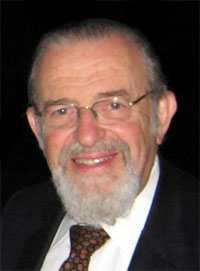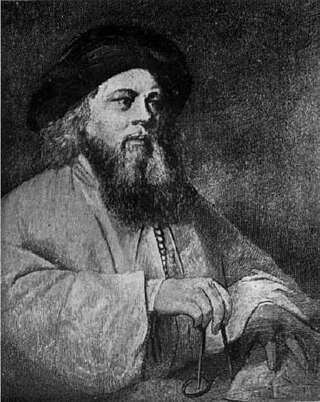
Rabbi Adin Even-Israel Steinsaltz was an Israeli Chabad Chasidic rabbi, teacher, philosopher, social critic, author, translator and publisher.
Ḥasīd is a Jewish honorific, frequently used as a term of exceptional respect in the Talmudic and early medieval periods. It denotes a person who is scrupulous in his observance of Jewish law, and often one who goes beyond the legal requirements of ritual and ethical Jewish observance in daily life. In the Mishnah, the term is used thirteen times, the majority of which being in the Tractate Pirkei Avot.

Rabbinic literature, in its broadest sense, is the entire spectrum of rabbinic writings throughout Jewish history. However, the term often refers specifically to literature from the Talmudic era, as opposed to medieval and modern rabbinic writing, and thus corresponds with the Hebrew term Sifrut Chazal. This more specific sense of "Rabbinic literature"—referring to the Talmudim, Midrash, and related writings, but hardly ever to later texts—is how the term is generally intended when used in contemporary academic writing. The terms mefareshim and parshanim (commentaries/commentators) almost always refer to later, post-Talmudic writers of rabbinic glosses on Biblical and Talmudic texts.

A yeshiva is a traditional Jewish educational institution focused on the study of Rabbinic literature, primarily the Talmud and halacha, while Torah and Jewish philosophy are studied in parallel. The studying is usually done through daily shiurim as well as in study pairs called chavrusas. Chavrusa-style learning is one of the unique features of the yeshiva.

Shneur Zalman of Liadi was a rabbi and the founder and first Rebbe of Chabad, a branch of Hasidic Judaism, then based in Liadi in the Grand Duchy of Lithuania and later in the Grodno Governorate of the Russian Empire. He wrote many works, and is best known for Shulchan Aruch HaRav, Tanya, and his Siddur Torah Or compiled according to the Nusach Ari.

Dov Ber ben Avraham of Mezeritch, also known as the Maggid of Mezeritch or Mezeritcher Maggid, was a disciple of Rabbi Israel ben Eliezer, the founder of Hasidic Judaism, and was chosen as his successor to lead the early movement. Dov Ber is regarded as the first systematic exponent of the mystical philosophy underlying the teachings of the Baal Shem Tov, and through his teaching and leadership, the main architect of the movement. He established his base in Mezhirichi, which moved the centre of Hasidism from Medzhybizh, where he focused his attention on raising a close circle of disciples to spread the movement. After his death the third generation of leadership took their different interpretations and disseminated across appointed regions of Eastern Europe, rapidly spreading Hasidism beyond Ukraine, to Poland, Galicia and Russia.

Ner Israel Rabbinical College, also known as NIRC and Ner Yisroel, is a Haredi yeshiva in Pikesville, Maryland]]. It was founded in 1933 by Rabbi Yaakov Yitzchok Ruderman, a disciple of Rabbi Nosson Tzvi Finkel, dean of the Slabodka yeshiva in Lithuania. Rabbi Aharon Feldman, a disciple of Rabbi Ruderman and a member of the Moetzes Gedolei HaTorah of America, became its head in 2021.

Norman Lamm was an American Modern Orthodox rabbi, scholar, academic administrator, author, and Jewish community leader. He was the Chancellor of Yeshiva University until he announced his retirement on July 1, 2013.

A maggid, also spelled as magid, is a traditional Jewish religious itinerant preacher, skilled as a narrator of Torah and religious stories. A chaplain of the more scholarly sort is called a darshan. The title of maggid mesharim probably dates from the sixteenth century.

Menachem Elon (Hebrew: ) was an Israeli jurist and Professor of Law specializing in Mishpat Ivri, an Orthodox rabbi, and a prolific author on traditional Jewish law (Halakha). He was the head of the Jewish Law Institute of the Hebrew University of Jerusalem.

Levi Yitzchok of Berditchev (1740–1809), also known as the holy Berdichever, and the Kedushas Levi, was a Hasidic master and Jewish leader. He was the rabbi of Ryczywół, Żelechów, Pinsk and Berdychiv, for which he is best known. He was one of the main disciples of the Maggid of Mezritch, and of his disciple Rabbi Shmelke of Nikolsburg, whom he succeeded as rabbi of Ryczywół. He is also the great grandfather of Israeli artist Isaac Frenkel Frenel.
A midrasha refers to a Jewish educational institute for women involved in Torah study. The term is often used for such institutions located in Israel. A midrasha is somewhat equivalent to the term yeshiva. The midrasha is also somewhat parallel to a "women's seminary", which functions in a similar form, though often associated with more traditionalist communities. While the terms may sometimes become interchangeable, "midrashot" are commonly linked to Religious Zionism, while the women's "seminaries" are usually associated with Haredi Judaism. Also, the term midrasha may sometimes be used to refer to pluralistic institutions. In Israel, the term may also refer to field schools that organize seminars and nature field trips.
Pardes (פרד"ס) is a Kabbalistic theory of Biblical exegesis first advanced by Moses de León, adapting the popular "fourfold" method of medieval Christianity. The term, sometimes also rendered PaRDeS, means "orchard" when taken literally, but is used in this context as a Hebrew acronym formed from the initials of the following four approaches:

Michael Levi Rodkinson was a Jewish scholar, an early Hasidic historiographer and an American publisher. Rodkinson is known for being the first to translate the Babylonian Talmud to English. Rodkinson’s literary works cover topics in Hasidic historiography as well as Judaic studies associated with the Haskalah movement.

Koren Publishers Jerusalem is an Israeli publisher of Jewish religious texts. It was established in 1961 by Eliyahu Koren, with the aim of publishing the first Hebrew Bible designed, edited, printed, and bound by Jews in nearly 500 years. It produced The Koren Bible in 1962, The Koren Siddur in 1981, and the Koren Sacks Siddur in 2009, in addition to numerous editions of these books and other religious texts in Hebrew, English, and other languages.

A Baal Shem was a historical Jewish practitioner of Practical Kabbalah and supposed miracle worker. Employing the names of God, angels, Satan and other spirits, Baalei Shem are claimed to heal, enact miracles, perform exorcisms, treat various health issues, curb epidemics, protect people from disaster due to fire, robbery or the evil eye, foresee the future, decipher dreams, and bless those who sought his powers.

Yehoshua Mondshine was an Israeli rabbi, scholar, researcher and historian associated with the Chabad-Lubavitch, Hasidic movement. Mondshine worked as a librarian and bibliographer at the National Library of Israel in Jerusalem.
Mor Altshuler is an Israeli scholar of Hasidism, Kabbalism, and Jewish messianism.













